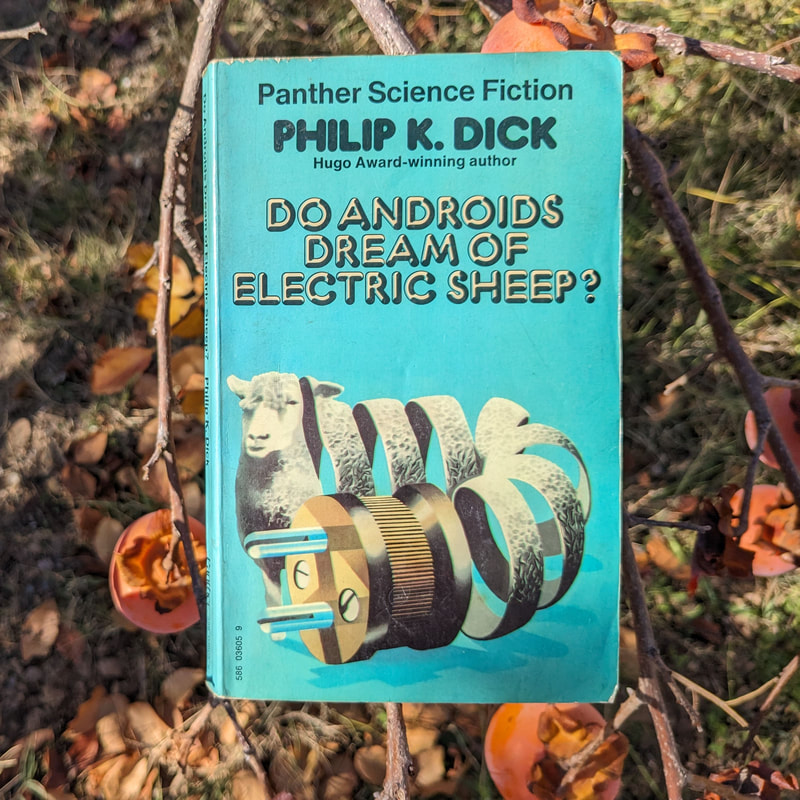|
There was a before and an after in my reading life and its name was Philip K. Dick.
The dam of priggish reading was burst, the snob was snubbed, and I tipped over into a sanguine land of wild ideas. To enter the cosmic open-mindedness of Dick’s imagination was like stepping into sunlight from the drab and stodgy intellectuality of my Britishness. From monochrome to colour. For intelligent fun there is no one like PKD. That his familiar milieu and point of departure was 1950s & 1960s California just made it more attractive. That on its own for me represented a can-do place of opportunity in contrast to restrictive, inhibited, anaemic England. Then, of course, Dick starts reimagining. In Philip K. Dick I discovered serious playfulness: a writer free to do and think whatever he liked, while taking this privilege responsibly. What I like about his novels is that he gives his characters a world that is somehow competent. It is non-kafkaesque. However outlandish the reality may be, there is no undermining of its fabric. The protagonists are in a fix but not guilty of unnamed sins or crimes, nor are they grievously ill-used. When the world is competent, you feel that things can happen. It gives them a chance to act and achieve something. He likes his characters and is compassionate, or at least fair, to the least of them. In this 1968 novel, ambiguities concerning human and android are clear yet never laboured. You don’t have to live in a cybernetic age to appreciate them: even if the growing existential threat from AI ratchets up the credibility of lethal robots, where the plot really works is on a deeper level of the psyche, and what it means to be human. The Mercerist empathy boxes offering collective experience in suffering are a tremendously suggestive idea. The book did, of course, find cinematic expression as “Blade Runner,” simply my favourite movie of all time 😊
0 Comments
Leave a Reply. |
Blogging good books
Archives
July 2024
Categories |

 RSS Feed
RSS Feed
